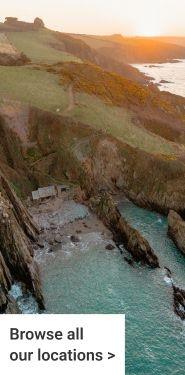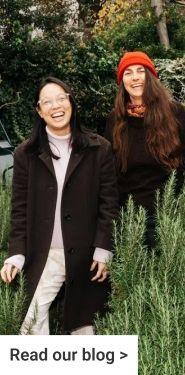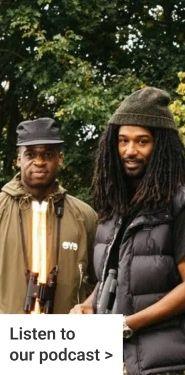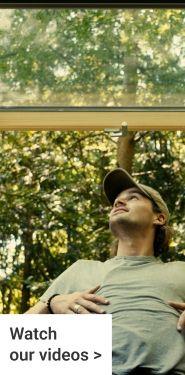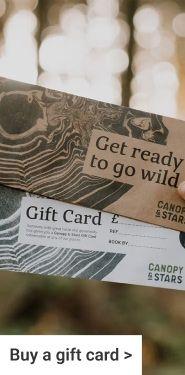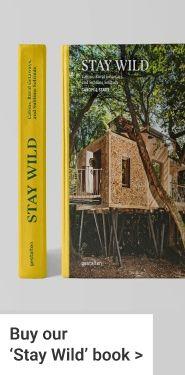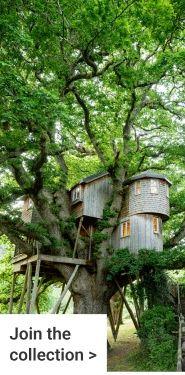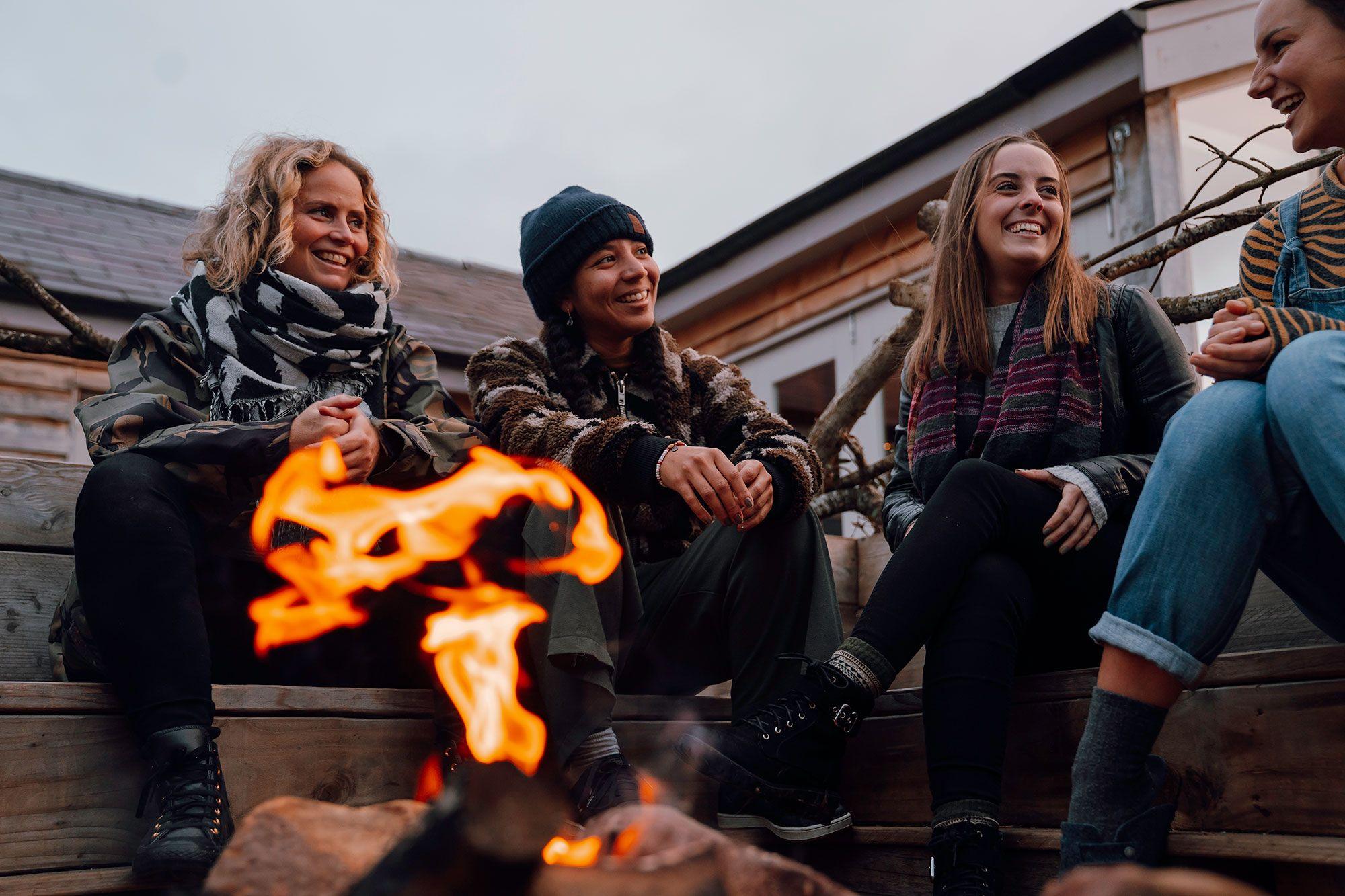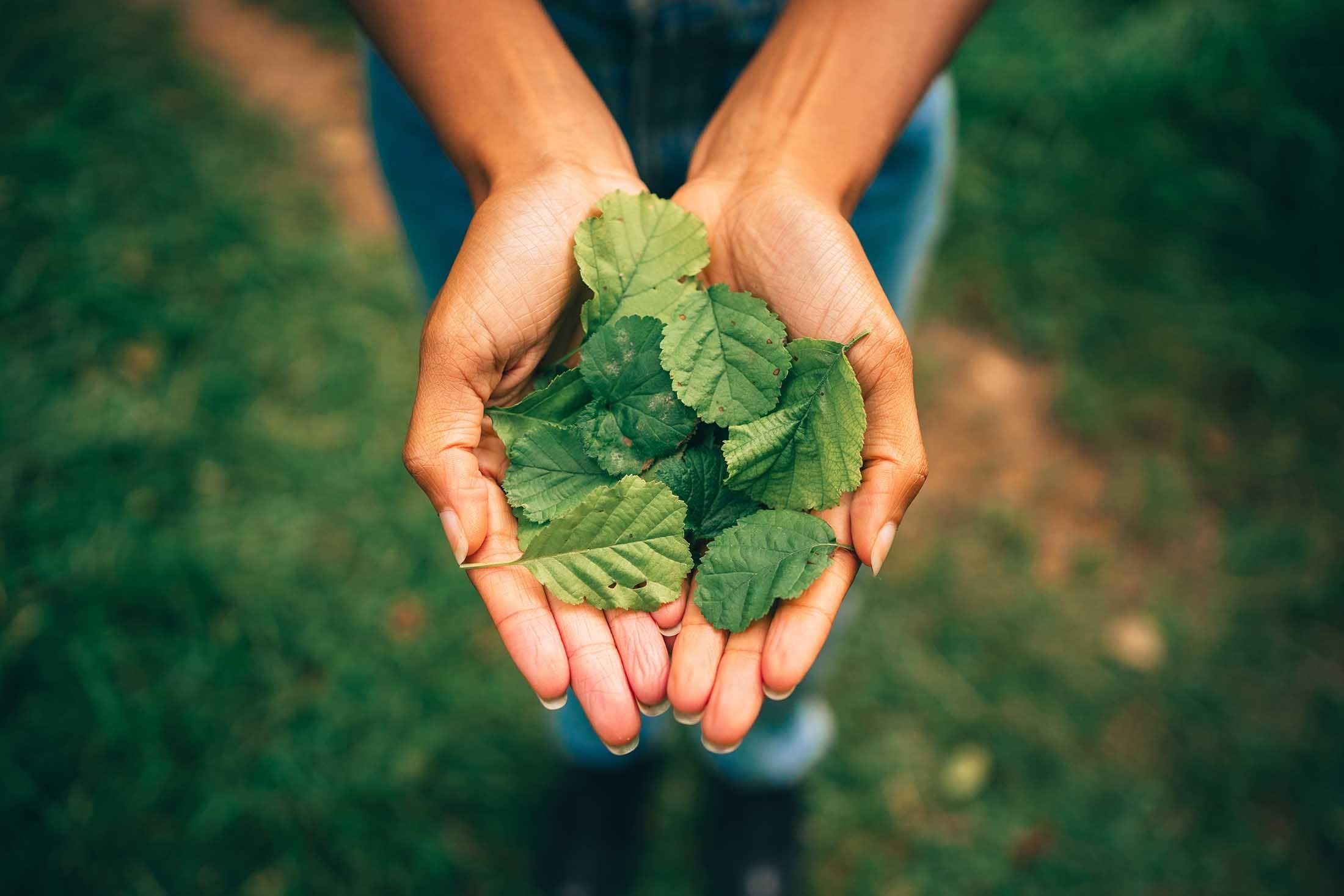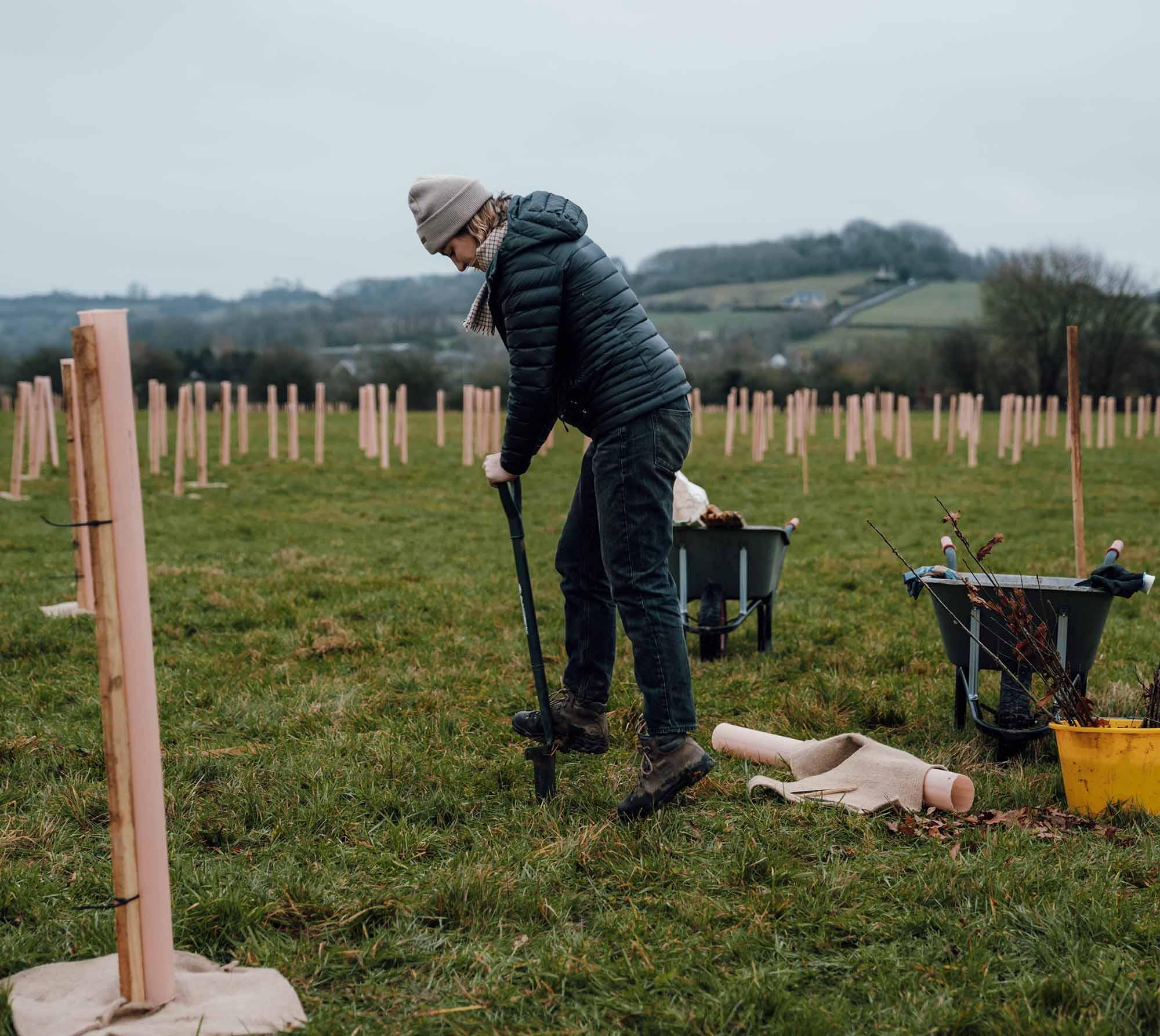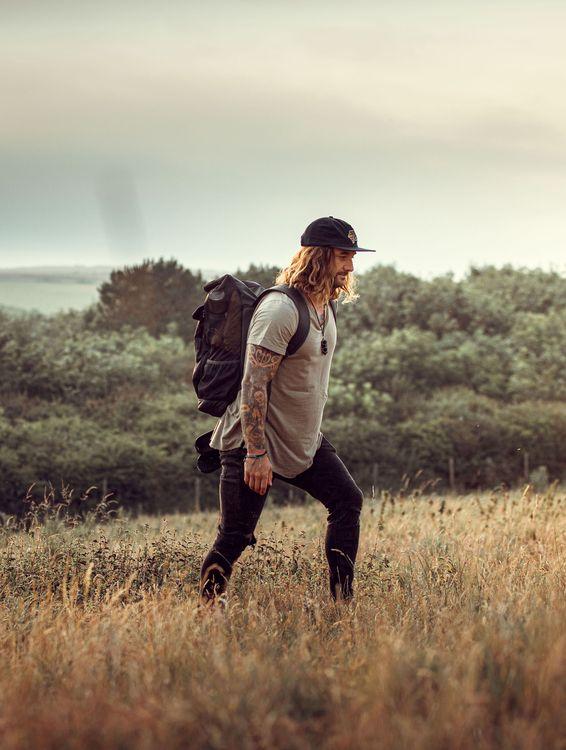
A Life More Wild - Series 2 Episode 5
Richie Norton & Gail Muller
Movement, calm and massive hikes
Episode five of a Life More Wild sees us walking in the woods with Richie Norton and hearing about the long road from losing his rugby career to finding his calm, as a breathing and movement coach. We also talk to Gail Muller, who pushed through a chronic pain condition to regain her adventurous lifestyle and walk the entire Appalachian trail.
Hello and welcome to A Life More Wild. This is Chris from Canopy & Stars and in this episode we're thinking about stillness and motion in the outdoors. Later on, we'll hear from Gail Muller who thru-hiked the entire Appalachian Trail despite a chronic pain condition. But first, we're walking in the woods with Richie Norton.
As a teenager Richie was one of the most promising young rugby players of his generation, but a serious injury meant his career was over before it had really begun. A long, bumpy and pretty dark road eventually led him to renewal and reinvention. He has now become a renowned yoga, breathing and movement coach, something he admits he would never have imagined in his wild rugby playing youth. We join him for a morning stroll near his Dorset home.
So, Richie, tell us, where are we right now?
Okay, so we've just left my cottage in this quaint little village called Cheddington. It's on the boundaries of Dorset, Somerset and Devon. You could literally look over across the fields to our left right now across the rolling green fields and see Somerset to the right. And just over the next hill is Devon. So, it's in that really great little triangle of all these beautiful rolling hills and country villages. But walking down this village road, [you] very rarely see another soul unless there's another dog walker, but it's often the animals that will make a more regular appearance -- a little Robin there on the right there -- just resting on the on the fence
Where are we off to now?
Where are we going here, we're taking the back route through the woodland, to the Cheddington estate. This is the scenic route, we're gonna walk down through a few bridle paths which cut through some of the farmer's fields and end up down at the pond, which is where we tend to go when the weather's right, it's usually undisturbed, nice and peaceful, nice and quiet. And that's where we'll hopefully get a chance to do a little bit of breath work and disconnect for a few minutes.
Have you always been this in touch with nature?
So just giving you a bit of backstory. I wasn't always in touch with nature and you wouldn't have found me wandering through fields talking about you know how magic wildlife is. I was a rugby player, through and through. I drank beer. I burnt the candle at both ends. And then I burned myself out. My rugby career began actually when I lived in the Middle East, my dad worked offshore. We were based in Doha, Qatar, and my dad used to play rugby out in the sand and that's when I was exposed to rugby. I just loved the physical element of it. So, we moved back to Cheshire where I went to school. When I got a little bit bigger, I started to get more opportunities to play a higher standard. I played my county, I had my first England trials as a colt, and I had real promise, I'd set my heart on being a professional rugby player. That's all I wanted to do. We're going to take a little right here, we just come up onto this country road. We'll head over to the right-hand side and just head down this little path here. I got an opportunity to go and play in America. So, I went to America and I thought right well this rugby is getting me a free ticket around the world. Let's go and exploit this and let's really make the most of it because what an opportunity. And then the injury came.
What exactly happened? You see a lot of injuries in Rugby, but I'm guessing this was, something else?
I crushed something in my spine. hyperextended my knee. I got knocked out a couple of times. And it was one thing after the other and I realised I wasn't doing enough and I hadn't prepared my body in the best possible way and fast track around the corner. I was a very lost boy, and I came home and with my tail between my legs. Because by that point I told everybody I was going to be professional and I was gonna end up as a TV pundit on Sky. And all of a sudden this dream was over and I [was] obviously gutted. My ego was very heavily bruised, I moved to London and I just got sucked into the London business, the city life. I was I was in this job, I was wearing a suit, making money. Working in this industry, I didn't really have any interest in that at all. I was doing it for all the wrong reasons. And I was filling in these gaps, making myself happy rather than being happy in myself, by going out and partying and doing things that weren't really good for my health. At that time, I just felt like I had to hit rock bottom. So, I wasn't exercising. I wasn't eating great food. I was drinking lots. And it was someone who just sat me down said 'you're not looking very well, is everything okay?' I was like, I could feel my bottom lip go and someone no one's really ever asked me that honestly. And it caused me to like look inside myself and reflect on the fact that I hadn't been happy for quite some time. And I was just literally getting by, I wasn't thriving, I wasn't living my best life. I was literally just getting by.
Okay, so as you would have noticed the grass has got very long under our feet. As we cross over into this next field, and we'll head over to the pond.
Where exactly did you, hate to say it, but find yourself? What changed?
Going back to where I found my happiness. I moved all the way to the other side of the world, I moved to Australia. And, I reconnected with the ocean, which had been part of my life from a very young age. I learned how to surf. I was 30 years old by this point. Everyone thought I was a nutter. I realised surfers were also practising yoga, I'd never done yoga, I thought yoga was for bendy girls in spandex. Brits, at one person who pulled me aside and said, Come and do a class with me. 'I think it's what you need, think it's what your body needs, I think it's what your head needs'. So not only was I out in nature, again, appreciating how incredible it is just to be outside in the sunshine around good people. It was slowing down my breathing. It was moving my body in different positions, that it felt like it had never been in before. All sorts of noises, all sorts of cracks, all sorts of pops. But I have never felt so good in all my life. Physically and mentally. I literally lied down at the end of another yoga class and completely forgot where I was. And it transformed my life from that point forwards. And that's when I knew I wanted to become a teacher. That's when I knew I wanted to embrace this in a deeper way, to try and turn my life around. And that was the key to me getting a second chance. I went all in on improving my health learned about my body and took myself out into the wild as often as I could to find some space because that's when I found I was able to think better, I was able to be myself, I felt less distracted. And that became the foundation of how I want to live from that point forwards.
Aha, is this our destination? Where are we -- this is beautiful.
So here we are in a magical pond. So, we're just at the edge of this pond, currently full of lovely lilies. And if you look closely, you'll see lots of frogspawn. There's lots of frogs about to be hatched from this from this pond, on the other side of the pond, we've got the local geese couple. But as you can just soak up here, just the sounds of the birds, the winds dropped off a little bit.
Why is it important to come out to places like this?
You got to give yourself some time. You've got to create a little bit of space. Where we are right now by this pond nestled in this woodland, take a big breath in. Now the sounds, the quiet. How often do people stop and just focus on their breathing like that? When did they ever stop just being in their head.
How do we build on that, become calmer and more composed?
So, a building block of being more composed and finding more focus is a slow breath into the nose, and breathe deep into the lower lungs. And then let it out nice and slow out of the mouth. You might notice a difference in just one breath. But imagine if you can find a bit of peace and quiet where you can do 10 rounds of that, or 10 minutes of that, not only will your blood pressure drop, your heart rate will slow down, your whole being will feel more at peace. So, if you want to start working on your wellbeing and work on your physical, mental and emotional health, bring attention to your breathing.
If you can incorporate that with some movement, improve your circulation, stretch out those tight tense muscles, lubricate your joints, work on your physical body. The more I paid attention to my body, the more I moved regularly, the more I slowed my breathing down, the better I felt all over.
You mentioned Australia, but you moved back after a short while?
I did three years in Australia, I learned so much. I came back to London, and nobody was talking about it. I was looking for places to go and eat that good quality food I'd got used to. I was looking for yoga studios that were teaching the classes that I wanted to go to, that I'd been used to. And I was I was walking around looking for gyms that I could connect with other people that were training the way I was training, I'd learned to do some jujitsu and Capoeira and all these other movement practices that were so fluid and felt so good in my body, that weren't just about lifting weights, that was having me looking and feeling better than ever been. And by that point, I was 33 years old, I was in the best shape of my life. So, I spent the next few months teaching anybody that wanted to be taught and start to host some of my own group classes. And, and it was great, because I was able just to do what I loved and have impact on people's lives, and, and being a bloke, and a rugby player, and a guy with tattoos and quite a muscley guy, and teaching these yoga classes, and how mobile I was now, flexible I was, I was full of my classes were full of guys that just couldn't touch their toes and, and all rigid and stiff and but they were big and aesthetically looked in great shape, but most of them were really poorly functional. And I realised I was onto something here. And I realised I was gonna have an impact on a lot of lives and I just went all in.
So, where's the intersection, you know, between physical and mental health -- and the outdoors and wild spaces?
When you're outside I find movement is just the natural action. If you're moving, you're not still. If you're looking to improve your posture, your position, get rid of aches and pains, you need to improve flow, you need to improve circulation, oxygen getting around the body, you need to change direction, you need to move in different directions. So as soon as you get up and move around a little bit, everything changes everything unlocks, you start to engage with different muscles, you start to breathe differently, your brain switches into a different gear. So, anything involves movement, is an advantage, and a move in the right direction to improve posture. And if you can do the outside when the sun shining, surrounded by nature -- bonus.
Do you ever look back and wonder 'what if'?
The old me, the person I think back, that I don't recognise, had a very limited range, when it came to dreams and ambition. Low expectations of himself. I'm grateful for the lessons, as tough as some of them were, and continue to be. I can't wait to see how long I can live and how much I can achieve, because I know anything's possible. If you put in the work, and you learn the skills and you practice what you preach. It's worth it.
Richie talked a lot about how you have to work for your mental and physical health. Something which Gail Muller knows all too well. Gail is a writer and adventurer with an unstoppable energy. Diagnosed with a chronic pain condition that stole her early 20s. She fought to regain her health, get back into the outdoors, and eventually take on all 2200 miles of the Appalachian Trail. Where are you right now? I was half expecting you to beam in by satellite from up a mountain or something.
I was potentially going to beam to you from footpaths, but I am coming to you from my house in beautiful sunny Falmouth, Cornwall.
I see you've got the map board up behind you.
Yes, that's the map of Cornwall behind me where I kind of mark with a date, where I hiked, who I hiked with. So, I have a lovely memory board here in my kitchen.
So, going sort of right back to the start. Have you always been a nature-outdoor-adventure person?
Well, I have, because I was lucky enough to be born here. And when you are brought up in the fields, next to the sea, and your family have a history of being rowers and seafaring people, you naturally, it is your playground, if you like.
What specifically were your memories of growing up in Cornwall?
For me my memories would be about freedom, about the trust my parents had in me and the safety that I had around me, being surrounded by fields and countryside, that I could put a little backpack on walk across two fields, but my parents could still keep an eye on me out of the top bathroom window, you know, but I didn't know that, I felt like I was so wild. So free, get to the little group of trees, two fields away, climb the trees and not be able to see, very much, in terms of conurbations, villages, towns for miles in every direction. And I could feel so at peace being in nature. And I remember coming back to that when I was very ill.
So, you've living this amazing sort of rural free life? Was there a moment when you were told that's not going to be the case forever?
Well, yes. And I was still pretty young and not able to process it really. So, when I had been born, my feet had turned inwards in utero. And I was told, and remember being told, that as a very small baby, I had casts on the back of my legs, to kind of straighten out my ankles, to encourage them to straighten my feet. And I think that was all signed off. I was a toddler. I remember people watching me walk and checking it was okay. However, my feet still turned in a little bit. And then my uncle very kindly noticed that and was concerned that it might have a knock on down the line. So, he was financially at the time able to have a private consultation in London, with a specialist for gait and Orthopaedics etc. So, I remember telling my lovely Mum, I don't want you to come in with me, I can do it by myself. So, in I went, you know, maybe it was 12/13. It was early teens, awkward, you know, puppy fat, feeling awful. And then I had to strip down to like just the bottom half in my pants so that on this treadmill, so they can film you and see how your knees, at the alignment of your hips and your movement. And I remember sitting on this little horrible plastic chair in my pants, and I remember him clearly saying, if you don't get your feet broken and reset, then you'll be in a lot of trouble down the line, with your physicality. And then probably you'll be in a wheelchair pretty much by the time you're, I'd say 40, that would be, that's kind of game over for you being mobile. And I remember being like, 'Okay, thanks. Gotta go'. And I never really told mom, because years later when I did tell her she was like, 'Well, WHAT you never told me that! There was no, necessarily, follow up at that time. And I was quite happily thinking, well, if no one mentioned it again, it's clearly not really a problem.
And it didn't bother you. You weren't brooding on it for days?
No, but it was definitely something I later realised I'd stuffed away in a shoebox in my head. And that was actually quite a heavy weight. It was like a premonition to come that I was refusing to consider, because at the time I was running cross country for my school, you know, and late, in my late teens, and early 20s. I was stroke rower for the gig rowing team here in Cornwall, feisty, strong, young woman, you know, dancing at the nightclubs. Everything was great. Until it wasn't, so in my, I'd say late 20s. I was studying for my PGCE at Exeter university which involves driving up and down, from Falmouth, and, on one occasion, a big transit van hadn't noticed I'd stopped and was indicating to go into a petrol station and he was cruising along the road, probably looking out the window at something nice, and shunted straight into the back of me while I was waiting to turn in. So that started 12-to-15-year, slow process of attrition of getting worse where, ultimately at times, I couldn't move my body out of bed. My entire right side was like it was on fire, agonised pain,
And you start to hear those doctors words again...
Exactly. That's like, I'm going to be in that wheelchair. This is going to be the end.
So, when you're talking about this, you said war of attrition with your body. How does that affect you emotionally over such a long time?
I think that if you have something that's linear, and you understand that you are declining, it's hard enough. And that's an emotional challenge. But for me emotionally, it was extra challenging because some days I'd be okay and feel better. And then another week, would go by, and I'd be in a terrible state again for another four months. So emotionally, that takes its toll a lot. It's a heavy weight, the person at the pain clinic towards the end of the road, the pain clinic, which back in the day, definitely felt like the knackers yard. And the clinician, the specialist, a fella, quite aged, and probably may be slightly archaic, in some of his thinking said to me, 'Gail, you must stop having hope it is holding you back. It is making it difficult for you to come to terms with the fact that life is going to be different for you forever, stop having hope, have acceptance'. And I would say you can have hope and you can have acceptance concurrently. So that's what I took for the pain clinic. Thank you pain clinic. There are a lot of nice people there. And it's changed a lot now. But that's my belief, in my blessed emotional states, in my most depressive periods when everything was dark. It was, 'I have to accept how I feel today, and right now in this hour', but I hope that the next hour will be different, and tomorrow will be different. There's always a way the sun always comes up. There's always a light at the end of the tunnel, for sure.
So, when was it? You went to Italy? Yes. What was the secret of that?
Well, I tried everything like in my school holidays, even though I was in a lot of pain. The only other thing I was able to do was sit in a plane seat go somewhere, try something new. I fasted in Thailand twice for 12 days in a row each, Transcendental Meditation, everything you can imagine plus Pilates and swimming, you know, all the good stuff. Everything worked for a minute, but nothing worked for very long. And I ended up seconded to the European Commission as a representative of excellence in British teaching. They put me, the commission put me, in a school in Italy. Brilliant, except not brilliant. Because once I arrived in Italy, yes, I'm not hopeless. I have got purpose. Whoo. Oh, I don't speak Italian. I live on top of a mountain. I don't have a doctor. I don't have a chemist. I've got no Pilates teacher. I don't know a chiropractor. I am over. There were many low points, but that probably, that was the lowest. And I do remember thinking 'shall I just yeet myself off this balcony into that forest'. But I recovered and came through. But it was in that night. On that moment, I found the phone number for a chiropractor, that my English chiropractor, Cornish chiropractor had given me. And from that moment on, it was the beginning. It was the beginning of my recovery. They did scans of my head. He worked closely with the chiropractor, the dentist and the chiropractor work together -- lots of people rubbish or poopoo chiropractic. That's absolutely fine to do. So, for me, it was a lifesaver. So those two together worked on my jaw. Having every single thing under the sun diagnosed. It's your feet. No, it's your spine. No, it's your brain. No one had ever said it's your teeth. These guys said, 'Oh yeah, it's your teeth'. So, they realigned how my teeth met in my mouth, they change the height of some of them. I wore braces for two years, which was pretty uncomfortable. But when the braces were off, I realised that through that process, my body had become more aligned, that how my teeth met predicated how my skeletal alignment was, it changed my eye balance. And that allowed my brain to tell my body to come into the straight alignment, because my jaw was wonky, and my teeth were wonky. Every time I chewed, spoke, yawned, my eyes would slightly skew, which would be sending a message to my brain that I wasn't level. So, my brain would say, 'oh, Gail needs to come up a miniscule amount on the right hand side' constantly. So, it was twisting me out of my own sockets. And when they align my teeth took away 90% of my pain. So, I just started to walk, started to run started to be able to lift weights, build my core muscles again. And then from there came, the Appalachian Trail and a whole new chapter of my life.
So, the Appalachian Trail then...
...oh, yeah...
...The scenery looks absolutely incredible. What was your sort of, if you can possibly give us a favourite moment of the trail or two or three even?
Favourite state -- Maine and the 100 mile wilderness. Because that's where I started and that's where a lot of things kind of, blew my mind. Learning a lot about trail culture, about the states, about Maine, about what it's like to be in 1000s of miles of forest. With British -- we have literally no idea you know about what that kind of mass and weight of forestry feels like around you. It's claustrophobic and frightening and the forest is alive, you know, so, Maine was stunning and the people were amazing. But for views for the most joyous moments on trail, with the best little nugget of trail family that I had, the Shenandoah mountain range. I'm in Virginia, walking the Shenandoah mountains was one of the greatest privileges I've ever had in my life and I'd recommend it to anybody -- it's just tremendous.
The trail must have just felt like an enormous personal triumph.
Yes, yes, yes, yes. And in the beginning of the trail, it was all about 'I'm gonna get to the end'. And then very soon it was like, 'am I gonna get to the end of today'? I mean, it just goes on and on and on. You think about 'I'm going to hike the Appalachian Trail' but every day all you do is get up pack your tent up filter some water, have a cold coffee, where the granules haven't dissolved properly. Walk all day in the tunnel of greenness. go to bed again -- for six months. Sometimes you just want to go home. And when I got to the end, I went back on trail in the winter -- blizzards, ice, eyelashes, frozen, hair frozen, barely anyone on trail, hiking through in the sleet to the very end. And I wept and wept, put my hands on it, put my forehead on the ground. It was literally 'Thank you, thank you, thank you, thank you, thank you' to the trail. And it makes me emotional. I'm emotional. Now. That trail that dirty ribbon through those forests, saved my life, gave me back to myself, gave me a new perspective on humanity, on nature, on why we are here, on what a good life is. And it's, it's a culmination of the trail angels, the people who live alongside it, the people who you meet, the people who open and bear their souls, the kindness of everyone helping each other along, and in the rain on that December day. I just gave thanks. I was the most humble and broken open I have ever been and may ever be. And in fact, it wasn't an ending to be honest. It was a beginning. Sorry to be emotional. It's very moving for me.
No, it's amazing. I'm, I'm booking a flight right now. I'm gone. So you've mentioned a couple of times. You've mentioned hiking families?
Yes, yeah. People who hike, maybe at the same pace as you and start similar times, they, they ebb and flow because people's pace has changed. But yeah, that's who they are. They're wonderful.
And what did you, sort of, learn from them?
I learned all sorts of things across the entire trail, but one is sometimes on a long trail, or even a short trail. Really. You feel like crap, it's rained for four days, maybe a week. Everything you own is wet, your quilt is wet, your socks are all wet, you're chafed. Your foods run out, you don't never want to see oatmeal again, as long as you live. You've had an argument on a mountaintop, and then you haven't had service to make that better for three and a half days. So, you feel terrible. And you want to go home. So, you say to your trail family. 'I am done. I'm outta here. I don't know why I'm hiking the stupid trail anyway, this is ridiculous. It's boring, and it's shit. So I want to go home'. And people say, 'Oh, okay, go home, go home. It's fine. If you want to go home, go home. We'll help you book a train, get a ride from the trailhead, we'll say goodbye and wish you the best. But you're not allowed to quit today. You're not allowed to quit while you feel crap. You have to wait to your next good day. And when you have your next good day, we'll remind you, and then we'll help you pack up your stuff and we'll send you home and no one will give you any grief'. 'Yeah. All right'. So, you feel like you've been heard, you know, and then grumble grumble, off you go. And then you have the next day or the day after the sun comes out. You have a cider with your friends because someone's left some magic on the side of the road for you. And someone goes, 'Hey, we're gonna book your camp now'. And you're like, 'why?' 'Oh, because you want to go home?' 'Oh, no, no, no, no, no, no going anywhere'. So, the advice is, never quit on a bad day. You have to wait till the good day. So just don't quit on a bad day, bad day at work, terrible day, whatever it might be with your relationship, hate where you live, whatever it might be. Wait till you feel good about life again, and then make the decision to give up. And quitting is never a problem. But just try not to do it when you feel your worst.
I love that
So, Richie and Gail have probably already got you fired up to take on the big challenges in your own life. But if you need more inspiration, check out the websites through the links in the Episode Notes. Remember to rate and follow us on your podcast app, and we'll see you outside again soon.

